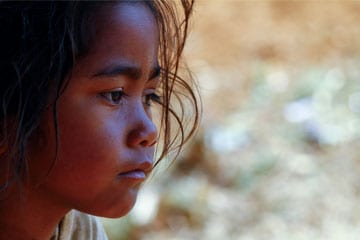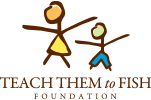
Human trafficking is a severe problem worldwide, including in Cambodia and Uganda, and girls are particularly vulnerable to this crime. According to the United Nations Office on Drugs and Crime, girls comprise almost three-quarters of all trafficking victims globally.
Human trafficking involves the exploitation of people for labor, sex, or other purposes through the use of force, coercion, or deception. Girls are trafficked for a variety of reasons, including sexual exploitation, forced labor, forced marriage, and organ removal. Traffickers may lure girls with promises of employment or education or kidnap them or use violence to force them into trafficking.
One of the most common forms of trafficking of girls is sexual exploitation. The International Labour Organization estimates that 4.8 million people are victims of forced sexual exploitation at any given time, and the majority of these victims are women and girls. In many cases, traffickers force girls into prostitution, pornography, or other forms of sexual exploitation.
Another form of trafficking of girls is forced labor. The Global Slavery Index estimates that there are 15 million people in forced labor globally, and women and girls comprise 71% of this population. Traffickers force girls to work in domestic service, agriculture, manufacturing, or other industries.
Forced marriage is also a form of human trafficking of girls. The United Nations estimates that 12 million girls are married before age 18 each year, and 10% are married before age 15, many of whom are against their will. People force girls to marry much older men or sell them into marriage for financial gain.
Traffickers also target girls and women for organ transplantation. According to the World Health Organization, there is a global shortage of organs for transplantation, leading to the rise of the black organ market. Traffickers may kidnap or trick girls into giving up their organs, leading to serious health consequences or even death.
The Teach Them To Fish Foundation plays a critical role in preventing and ending the trafficking of girls through education. By building schools in Cambodia and building schools in Uganda for children who do not have schools to attend while emphasizing the importance of educating girls at risk for trafficking, we raise awareness, empower girls, and provide rehabilitation and support to help protect girls from trafficking and enable them to live safe, healthy, and fulfilling lives. Education is a powerful tool for preventing and ending human trafficking, particularly of girls. Educating girls can help them understand their rights, recognize the signs of trafficking, and empower them to resist traffickers.
Raising Awareness: Education can help raise awareness about the issue of human trafficking and its impact on girls. Educators can teach students about the warning signs of trafficking and how to stay safe from traffickers. By raising awareness, education can help prevent girls from becoming victims of trafficking. In line with the United Nations’ stance on promoting education for girls to empower them and reduce their vulnerability to exploitation and abuse, “Education can provide girls with the knowledge and skills they need to make informed decisions, resist exploitation, and advocate for their rights.” Educating girls can help them understand the risks of trafficking and the importance of staying safe.”
Empowerment: Education can empower girls to resist traffickers and assert their rights. Education can help girls build their self-esteem, confidence, and critical thinking skills, which can help them recognize and resist the tactics of traffickers. In addition, educated girls are more likely to be able to protect themselves and advocate for their rights. The United Nations Children’s Fund (UNICEF) noted, “Girls who are educated have more options and opportunities, including greater control over their own lives, which can help protect them from exploitation.”
Rehabilitation: Education can also play a role in rehabilitating girls who have been victims of trafficking. Educators can provide girls with skills and training to help them reintegrate into society and rebuild their lives. Education can also help girls overcome the trauma of trafficking and regain their confidence and sense of self-worth. According to the United Nations, “Education can play a key role in the rehabilitation and reintegration of survivors of trafficking, helping them to regain their sense of identity and purpose.”
The Teach Them To Fish Foundation can help to end trafficking of girls by building schools in Cambodia and building schools in Uganda to raise awareness, empower girls, and provide rehabilitation and support to help enable girls to live safe, healthy, and fulfilling lives.
Please help us help vulnerable girls. DONATE TODAY.
Thank you, Chase Sizemore

Comments are closed.